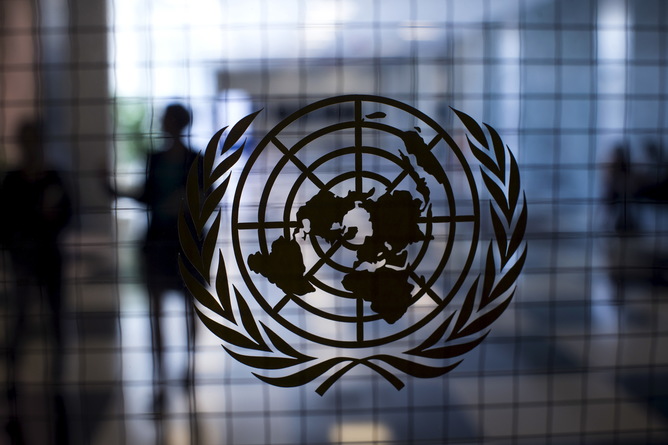
The shift in the perceived role of corporations as solely profit generators to agents for positive change has become clearer than ever before with the new UN Sustainable Development Goals (SDGs).
The SDGs focus on the greatest challenges faced by humanity with the aim of ending poverty and hunger, misery and war, unfairness and inequality. Clearly, governments alone cannot achieve this big agenda, nor should they. Businesses have enormous power, resources and knowledge to assist. Corporate responsibility is no longer about doing less harm, or giving money to charity.
The SDGs include 17 global goals (and 169 related targets), replacing the Millennium Development Goals (MDGs). Adopted by the UN on September 25, they seek to encourage government, business and other players to focus simultaneously on the three dimensions of sustainable development: economic prosperity, social inclusion and environmental sustainability.
According to the UN, the SDGs clearly define the better and more just world we want – applying to all nations and leaving no one behind.
From our partners:
Business roles and opportunities
Business, from micro-enterprises to multinationals, has a vital role to play in achieving each of the SDGs. The UN is very explicit about the expectations placed on the for-profit sector around the world.
For business, this means fostering “a dynamic and well-functioning business sector, while protecting labour rights and environmental and health standards”.
Firstly, business can help by ceasing to create problems that governments have to fix. Some businesses create pollution and poverty, violate human and children’s rights and have supported war and conflict, all in the name of shareholder value. If we are to collectively achieve the SDGs, these practices must stop.
Moreover, businesses can proactively collaborate with others to achieve each of the SDGs through sustainable business operations, responsible investment and innovation. International trade may be part of the solution, using supply chains as a powerful mechanism to also provide aid and resources to the developing world.
The SDGs do not only present business with duties, they can be seen as great opportunities. Successful implementation of the SDGs will strengthen the environment for doing business and building markets. Even the most responsible companies struggle to thrive in communities marked by instability and conflict, to find skilled labour where adequate education is lacking, or to withstand natural disasters stemming from climate change.
The UN and others are not naive. We all know profit will continue to be the main motive for many companies and some will still need to be monitored. While some call for more radical measures, such as taking out “economic prosperity” as one of the three underlying goals of the SDGs, others understand that working within the existing business environment could achieve a better commitment.
Some businesses are already there
The number of companies already working to achieve the SDGs is growing. For example, Schneider Electric is committed to achieving gender equality (Goal 5), by eliminating the gender pay gap for its 150,000 employees by 2017. It has developed innovative processes and practices to do so.
Unilever is committed to ensuring sustainable consumption and production patterns (Goal 12) through its Sustainable Living Plan and its vision to reduce its environmental footprint by 2020. The plan details changes in production patterns (from sourcing raw material to transporting goods) and sustainable consumption by offering consumers better products.
Some companies even strive to promote peaceful and inclusive societies (Goal 16). Ben & Jerry’s and PUMA support peace-related causes, increase awareness and promote activities to enhance peace.
This year, Coca-Cola placed Small World Machines in Pakistan and India to provide a live communications portal to people divided by conflict, in the hope of promoting cultural understanding.
Last night 300 CEOs signed on to the SDGs at the UN Private Sector Forum. Facebook CEO, Mark Zuckerberg, highlighted the critical role of business in advancing the new global agenda. He announced Facebook’s commitment to make universal internet access a reality in the next decade. Participants were introduced to the SDGs Compass to help them do this.
The role of the UN Global Compact
In the year 2000, former UN secretary-general Kofi Annan called for business to put a human face to a global market. Together with 50 business leaders they started the UN Global Compact – a compact between companies and the UN aimed at increasing collaboration and responsibility towards the MDGs. Growing rapidly to 8000 corporate members, the Global Compact can play a vital role in connecting business and governments to achieve the SDGs.
In the guidelines released this week, the Global Compact asks companies to first do business responsibly and then pursue opportunities to solve societal challenges through business innovation and collaboration – both important contributions to the SDGs. In short, companies must not make our world’s problems worse before they try to make them better.
The UN Global Compact will translate the SDGs for business and help companies understand how they can leverage these goals to drive good practices, growth opportunities and innovation. It launched the UN Business Action Hub as a platform where UN agencies and business engage in dialogue, share information and take action to advance the SDGs.
The SDGs present business with unprecedented duties and opportunities to change our world beyond recognition, but this time for the better. They offer a blueprint for what our society should look like 15 years from now. If achieved, the world would be better for all of us — including for businesses.
This feature originally appeared in The Conversation.

















